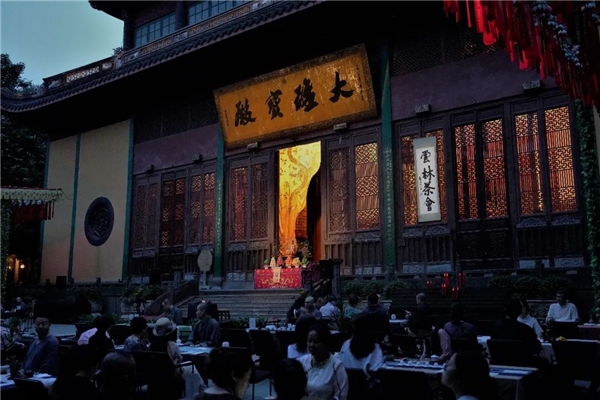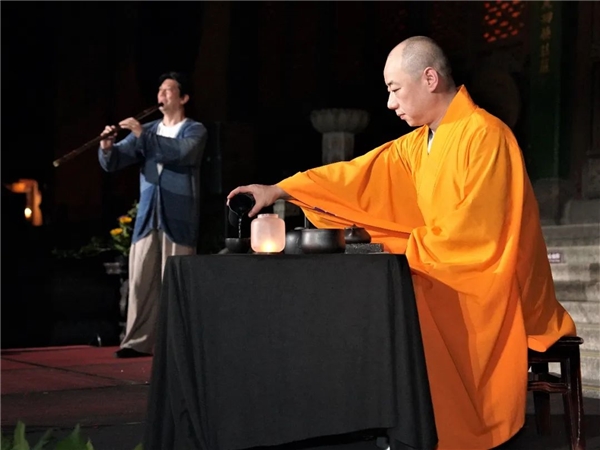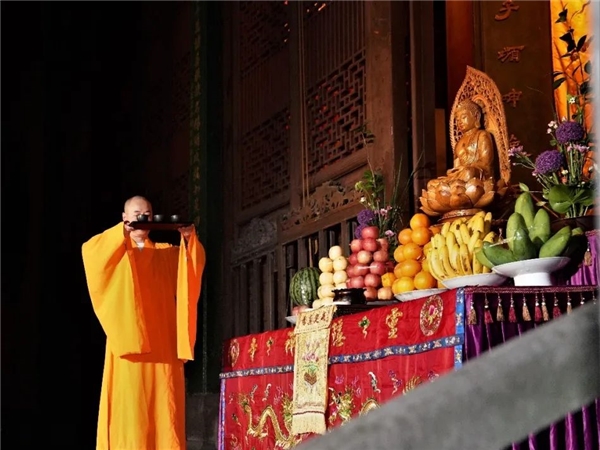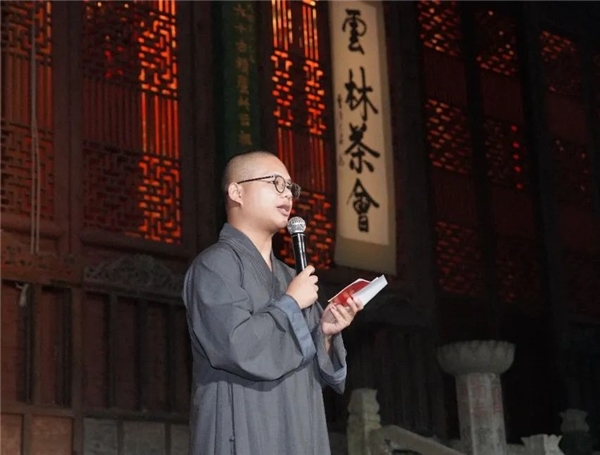
From May 10th to 12th, 2024, the annual Yunlin Tea Ceremony arrived as scheduled. In the peaceful blend of tea fragrance and moonlight, tea enthusiasts and guests from all walks of society, as well as Dharma protectors and lay Buddhists, gathered in front of the Mahavira Hall of Lingyin Temple, engaging in a dialogue of Chan, tea, and joy.

Chan and tea have always complemented each other in traditional Chinese culture. Chan endows tea with profound connotations, while tea gives Chan a taste of life. Tea is the essence of nature, and Chan a dialogue of the soul. The Chan tea ceremony is a harmonious symphony between the mind and objects, and between minds, reflecting the "harmony, elegance, purity, and tranquility" that we all strive for in our life. Since 2007, Lingyin Temple has been holding the Yunlin Tea Ceremony with the aim to transmit the compassion and wisdom of Buddhism to the public through this form.


The theme of this year's tea ceremony was "benevolence, inclusiveness, and gratitude." Master Zhongwei started from the connotation of the word "benevolence" and combined it with the "Two Entries and Four Practices" of Patriarch Bodhidharma, closely linking the spirit of giving joy and removing suffering with the needs of modern society, and explaining to the public the methods of practicing benevolence in daily life. Master Dingping also expanded the meaning of inclusiveness from understanding others to treating all sentient beings kindly, from harmonious interpersonal relationships to spiritual growth and ultimately the attainment of Buddhahood. With regard to gratitude, Master Nengjing used the "Fourfold Graces" in Buddhism – the Grace of Parents, the Grace of Sentient Beings, the Grace of Heaven and Earth, and the Grace of the Three Jewels – to explain in detail why we need to repay and how we can repay them.